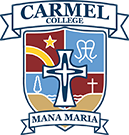A Reflection On A Full Calendar
As well as making sure students can access online learning and answering many queries, the Senior Leadership Team has spent some time looking at the 2021 calendar with the view of moving or cancelling events that were to happen this week and next.
This exercise has brought home to me that in wanting to do so much we are in fact contributing to people – Parents, Staff and Students – being ‘time poor’. Indeed that was one of my learnings from the 2020 Lockdowns – time is precious and we need to look at prioritising what is actually needed as opposed to what is desired. I obviously need to do more work in this area..
However, discussions about calendars led me to reflect on the events organised at school on Friday lunchtime last week to celebrate the Lunar New Year. Our Chinese Language Teacher, Mrs Kate Gan and Head of International Students, Sindy Feng along with a team of willing helpers, organised a group of dancers to come into school to perform the Lion Dance. They also organised opportunities for Carmel Students to make paper cutouts and try their hand at Chinese calligraphy.
The Lunar calendar which is based on the cycles of the Moon‘s phases is used by many people throughout the world to determine religious festivals and national holidays. Such holidays include Rosh Hashanah (Hebrew calendar); Easter; the Chinese, Japanese, Korean, Vietnamese, New Year and Lantern Festival, Vesak/Buddha’s Birthday (Buddhist calendar); Diwali (Hindu calendar); and Ramadan (Islamic calendar).
However, global trade and travel have meant that the Gregorian Calendar is the most widely used calendar. The Gregorian Calendar was developed by a group of Italian scientists led by Aloysus Lilius and endorsed by Pope Gregory in 1582. It has 365 days and is based on the orbit of the earth around the Sun – i.e. it is a solar calendar.
Early Protestants viewed the Gregorian calendar as a Catholic plot so that when published it was first adopted in Catholic countries—including Spain, Portugal and Italy and it was not adopted by other European countries until the 1700’s. Britain was the last European country to adopt the Gregorian Calendar and that was not until 1752.
Calendars are a tool for us to ‘manage’ our time – so whatever calendar you follow, remember that they were created to help us, not the other way around. It is also important to remember the words of Ecclesiastes 3 “To every thing there is a season, and a time to every purpose under the heaven”.
So now that our current Alert level has moved to Level 2 , do not be too hasty to return to overfull calendars. Watch the rhythms and seasons of creation as they teach us to slow down and enjoy the present moment as if it is precious to us – a sacred moment given by God, that should bring measure and mercy to our day.
References
https://www.history.com/author/jennie-cohen
https://www.history.com/news/6-things-you-may-not-know-about-the-gregorian-calendar https://www.calendar.com/blog/gregorian-calendar-facts/
https://en.wikipedia.org/wiki/Lunar_calendar

